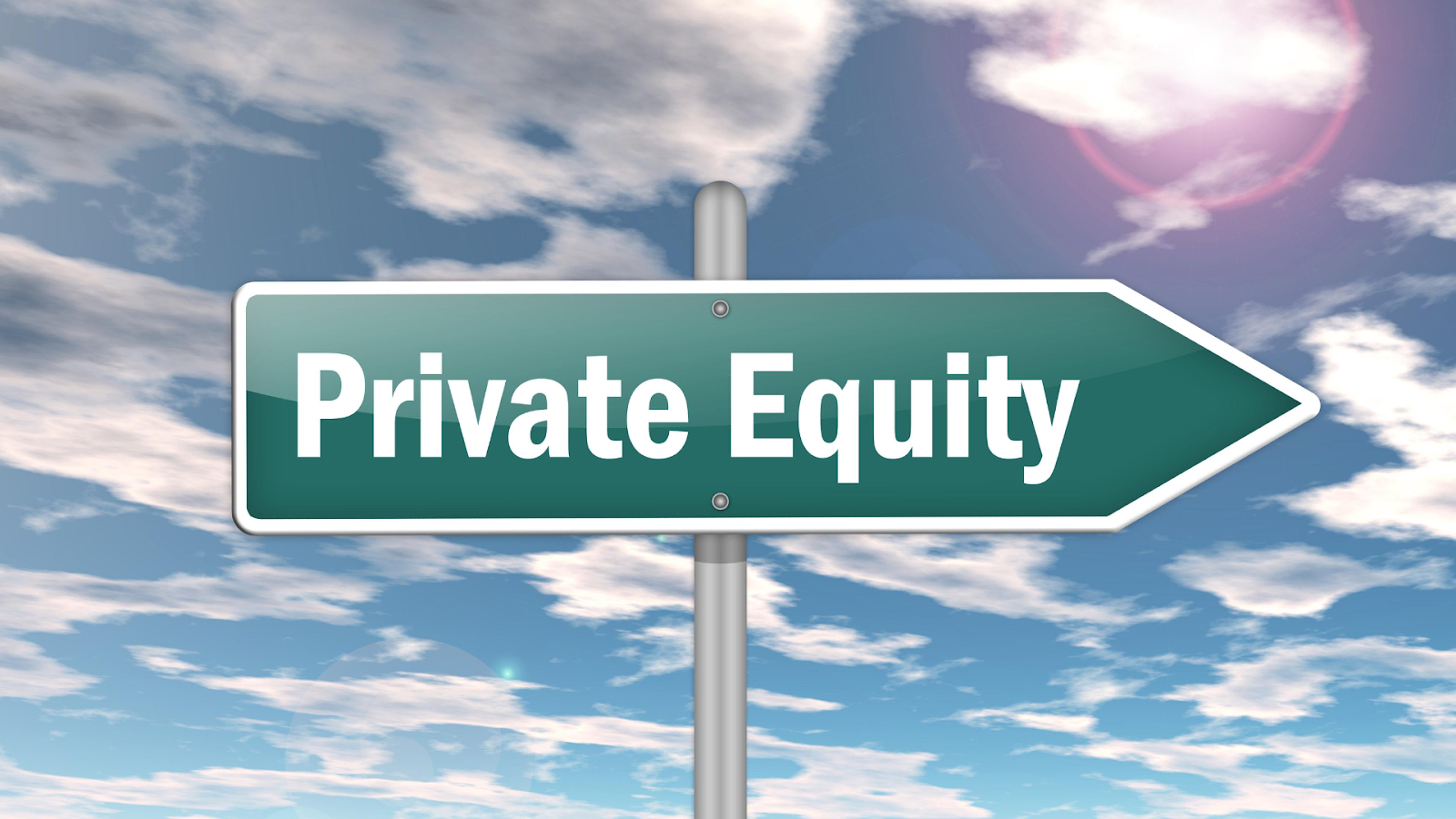KKR Interview Guide: Questions & Expert Tips
Get expert advice on how to answer “why KKR” and succeed in every stage of the KKR interview process. Includes real questions, tips, and prep strategies.
Posted October 25, 2025

Join a free event
Learn from top coaches and industry experts in live, interactive sessions you can join for free.
Table of Contents
KKR (Kohlberg Kravis Roberts) is a global investment firm known for its involvement in private equity, infrastructure, credit, and real estate. Founded in 1976 by Jerome Kohlberg, Henry Kravis, and George Roberts, the firm has grown into one of the most influential names in alternative asset management. As an overview, KKR, the firm, has a long history of pioneering large-scale buyouts, focuses on a diverse range of investment strategies, manages assets for clients worldwide, and is recognized for its strategic approach as a leading global private equity and asset management firm.
If you’re preparing to join KKR, it’s important to understand how the interview process works, what questions to expect, and how to approach each stage with clarity. This guide covers every aspect of the process, based on actual interviews, structured feedback, and internal insights, to help you prepare with confidence.
Overview of KKR
KKR (Kohlberg Kravis Roberts) is one of the most influential global investment firms in the private markets. Founded in 1976, the firm pioneered the modern leveraged buyout and remains a leader in the deployment of both institutional and proprietary capital across complex capital structures. KKR manages investments in private equity, credit, real estate, infrastructure, and growth equity, with $500B+ in assets under management as of its latest filings.
With offices in 20+ cities, KKR operates as both an asset manager and a principal investor, often putting significant amounts of its own capital alongside limited partner funds. This co-investment model aligns incentives with investors and differentiates the firm from traditional asset managers. KKR employs a diverse range of employees who serve clients, including institutional investors, families, and companies, tailoring solutions to meet the specific needs of these clients across different sectors and investment types.
KKR builds long-term value through direct operational involvement, sector specialization, and active governance in its portfolio companies. The firm’s investment strategy spans industries, regions, and stages of development and growth, allowing it to identify and structure deals with strategic flexibility.
Core Investment Strategies
| Asset Class | Investment Focus |
|---|---|
| Private Equity | KKR's flagship strategy. Focuses on buyouts, take-privates, and platform investments. The firm typically seeks control or significant influence to drive operational value creation across portfolio companies. |
| Real Estate | Acquisitions and asset management across industrial, office, residential, and logistics properties. KKR targets both equity and debt opportunities with geographic diversification. |
| Credit | Encompasses direct lending, asset-based finance, special situations, and structured credit. This vertical supports capital solutions for companies across market cycles. |
| Infrastructure | Long-term investments in essential assets across energy, water, transportation, and communications. Focus is on stability, inflation linkage, and yield generation. |
| Growth Equity | Non-control investments in mid-to-late-stage private companies with strong unit economics and category leadership. KKR acts as a strategic partner in scaling operations globally. |
The KKR Interview Process
Interviewing at KKR is structured, intense, and designed to assess candidates across behavioral, technical, and strategic dimensions, ensuring that they can withstand online attacks on their skill . While the specific format varies by division, private equity, credit, real estate, capital markets, or investor relations, most applicants can expect a multi-stage process that includes both standardized assessments and live interviews with different levels of the firm.
Some candidates go through as few as four interviews, while others, especially those in investment roles, report 6 to 9 rounds, often including a Superday, which acts as a security solution to filter candidates.
Read: Top Skills You Need to Break Into Private Equity
Online Assessments
Most processes begin with some form of online evaluation. For investment-facing roles, this may include logic-based tests, Excel or modeling assessments, or general quantitative reasoning. Other roles may involve personality or behavioral screeners. These are often automated and used to assess attention to detail, structured thinking, and baseline technical fluency.
HireVue or Pre-Recorded Video Interview
In early rounds, applicants often receive a HireVue interview with pre-set behavioral questions. These questions typically include:
- “Tell me about yourself.”
- “Describe a time you led a team through a difficult situation.”
- “Why KKR?”
You usually get one attempt to record your answer. Clarity, focus, and brevity matter. This stage is often used to screen for communication skills and motivation.
First-Round Interviews
Once you move beyond the automated filters, you’ll typically have one or two live interviews with junior or mid-level professionals, usually associates or principals. These can be virtual or in person.
Expect a mix of behavioral and technical questions. Interviewers may walk through your resume in detail and test your knowledge of basic financial concepts, valuation methods, or recent market developments. If you're interviewing for a real estate or private equity team, you may also be asked to explain how you would analyze a deal or approach a specific sector.
Superday
For many roles, especially those in private equity or structured credit, a Superday follows. This is a single day packed with three to five interviews. Candidates often meet with multiple people from different levels of the team, from junior staff to VPs or even MDs. A case study or technical modeling test is often part of this round. This may involve building an LBO model from scratch, analyzing a company’s capital structure, or presenting an investment recommendation.
Superdays are where candidates are pushed on their logic, assumptions, and communication style. You’re not just being tested on accuracy; you’re being evaluated on how you think and how well you can defend your views under pressure.
Read: Private Equity Roles: The Different Career Paths
Final Round with Senior Staff
Final interviews are typically conducted by partners, managing directors, or division heads. The tone of these interviews often shifts toward long-term thinking, cultural alignment, and strategic perspective.
You might be asked questions like:
- “What kind of investor do you want to become?”
- “How do you think about risk?”
- “What would you do differently if you led our last deal?”
In some cases, senior interviewers will challenge your thinking or probe personal values to see how you respond under pressure.
Process Differences by Division
The overall framework is consistent, but the depth and focus of each stage depend on the team you’re applying to.
- Private Equity candidates should expect LBO modeling, deep investment case work, and questions on valuation, comparables, and industry selection.
- Real Estate roles may involve property-level underwriting, cap rate analysis, and questions about geographic markets.
- Credit teams focus more on structured instruments, debt coverage, and downside protection.
- Capital Markets applicants may be quizzed on market news, structuring transactions, and interest rate scenarios.
- Investor Relations or Ops candidates tend to see more behavioral interviews, presentation assessments, and scenario-based business questions.
What Makes KKR’s Interview Process Unique
KKR interviews go well beyond standard private equity or finance interviews. The firm is known for:
- Prioritizing clear, concise communication
- Testing for investor judgment, not just technical skill
- Emphasizing cultural fit and long-term motivation
- Expecting fluency across strategy, operations, and execution
Most candidates walk away with the impression that interviewers are exceptionally smart, focused, and prepared. The bar is high, but if you’re well-prepared and clear about your reasons for wanting to join KKR, you’ll stand out.
Interview Experience by Role
Analyst & Summer Analyst Roles
If you're applying for an analyst or summer analyst role, whether in private equity, investor relations, real estate, or a generalist track, you can expect a heavy focus on behavioral questions and market knowledge. You’ll likely face questions about why you want to join KKR, what interests you about private equity, and how you think about risk and return. Some roles may include Excel-based assessments or technical screens, especially if you're applying to groups that deal directly with investments or capital structure analysis.
Modeling skills might be tested lightly, but the priority at this level is to evaluate your potential, curiosity, and communication skills.
Associate Roles
Associate interviews are more technical and rigorous. These roles often require previous experience in investment banking, consulting, or another investing firm. Expect to be tested on your understanding of leveraged buyouts, including LBO modeling from scratch, returns analysis, and capital structure scenarios. You may be asked to walk through past deals you’ve worked on, covering diligence, valuation approach, and key risks.
Interviewers will also assess your investment philosophy. They want to know how you think about sourcing, structuring, and exiting deals. Strong associate candidates are able to articulate what makes a business attractive beyond just the numbers.
Support & Operations Roles (EA, IR, HR)
Roles in support functions like executive assistance, investor relations, and human resources follow a different interview flow. These focus more on communication, cultural fit, attention to detail, and professionalism. You may be asked how you handle sensitive information, how you prioritize in fast-paced environments, or how you’ve dealt with urgent requests or scheduling conflicts. The bar is still high. Interviewers want to see that you can represent the firm internally and externally with precision and reliability. Cultural alignment is key. These roles support KKR’s leadership and investment professionals, so your ability to understand the pace and expectations of a global investment firm is critical.
Note: Your experience interviewing at KKR will depend heavily on the position you're targeting. While the firm applies a high bar across the board, the process is shaped by what’s required of you once you're on the team, whether that’s sourcing deals, building models, or supporting internal operations.
Role-Based Interview Comparison
The table below outlines which interview components are emphasized for different roles at KKR. This helps candidates focus their preparation based on what the firm typically prioritizes.
Key:
High = Core part of the interview
Medium = May be included, depending on the team
Low = Not typically part of the process
| Role | Behavioral | Technical | Case Study | Market Knowledge | Modeling |
|---|---|---|---|---|---|
| Summer Analyst | High | Medium | Medium | High | Medium |
| Associate | High | High | High | High | High |
| Investor Relations | High | Medium | Medium | High | Low |
| Executive Assistant | High | Low | Low | Medium | Low |
Note: Each role has a different emphasis. Investment-facing roles require strong modeling and technical skills, while support and investor relations roles place greater weight on communication, professionalism, and alignment with the firm’s culture.
Common KKR Interview Questions
Behavioral Questions
Why KKR?
Sample Answer: “I want to work at KKR because of the firm’s track record in private equity and its approach to value creation. The use of its own capital alongside client funds shows real alignment. I also respect how the firm builds long-term partnerships with portfolio companies instead of relying solely on financial engineering. I believe it’s important to be able to speak knowledgeably about KKR’s specific deals, key people, and business model during interviews to demonstrate genuine interest and preparation.”
Why private equity?
Sample Answer: “Private equity combines strategic thinking, financial analysis, and operational involvement. I’m drawn to the ability to influence company outcomes, work closely with management, and create value over time, not just react to short-term market moves.”
What is your proudest achievement?
Sample Answer: “In my final year at university, I led a team that built a financial model for a local business seeking funding. They secured a small capital raise based on our work. It was the first time I saw how financial tools could support real decision-making.”
How would coworkers describe you?
Sample Answer: “They’d say I’m dependable, structured, and focused under pressure. I’m often the one who makes sure the team sticks to deadlines and avoids unnecessary complexity when solving problems.”
Tell me about a failure and how you handled it.
Sample Answer: “During an internship, I missed a formatting issue in a client deck that was caught late. Afterward, I built a checklist we used for final reviews. It taught me that small details matter as much as the analysis.”
Where do you see yourself in 5–10 years?
Sample Answer: “I see myself taking full ownership of investment decisions, sourcing, analyzing, and helping manage portfolio companies. I want to be part of a team that delivers strong returns and builds lasting businesses.”
Technical Questions
Walk me through an LBO model.
Sample Answer: “Start with purchase price and capital structure. Project operating performance over the hold period. Calculate free cash flow to pay down debt. Model exit using an EBITDA multiple. The model outputs IRR and MOIC. Key drivers are entry price, leverage, margin expansion, and exit multiple.”
What are the three main valuation techniques?
Sample Answer: “DCF, Comparable Company Analysis, and Precedent Transactions. DCF is intrinsic, based on projected cash flows. Comps and precedents are market-based and reflect how others price similar companies.”
How do you value a coal mine?
Sample Answer: “Use a DCF based on production volume, pricing forecasts, and operating costs. Also consider NAV or reserve-based valuation. Adjust for environmental liabilities and regulatory risk.”
Would a given transaction be accretive or dilutive?
Sample Answer: “Compare pro forma EPS to standalone EPS. If EPS increases, it’s accretive. The analysis includes financing costs, synergies, and share dilution if applicable.”
What makes a company a good LBO candidate?
Sample Answer: “Stable cash flows, low CapEx, limited cyclicality, strong market position, and potential for operational improvement. These factors support leverage and improve return potential.”
Market & Investment Questions
What’s your investment thesis for (Company)?
Sample Answer: “For [Company], I’d highlight recurring revenue, strong margins, and a growing customer base. There’s upside through pricing, international expansion, and bolt-on M&A. Risks include competition and reliance on a single segment.”
How would you evaluate the risk of a specific sector?
Sample Answer: “I’d analyze regulation, cyclicality, cost structure, and competitive intensity. I’d also look at customer concentration and margin stability across the cycle.”
What would your portfolio look like today?
Sample Answer: “I’d focus on companies with pricing power and high cash flow, especially in infrastructure, insurance, and business services. I’d also include credit investments in defensive sectors.”
How would oil prices change over the next 12 months?
Sample Answer: “I expect moderate upside driven by supply discipline and geopolitical risk, offset by demand concerns if growth slows. My range would be $75–$90, with most upside from emerging market demand.”
Brain Teasers or Curveballs
Two doors: one leads to heaven, one to hell. One guard always lies. What question do you ask?
Sample Answer: “Ask either guard: ‘If I asked the other guard which door leads to heaven, what would they say?’ Then take the opposite door.”
Before Mt. Everest was discovered, what was the tallest mountain?
Sample Answer: “Mt. Everest, it was the tallest even before it was discovered.”
Case Studies and Modeling Tasks
Case studies are a critical part of the KKR interview process for investment-facing roles, much like how a site owner evaluates various factors during a business assessment. They are designed to assess your ability to evaluate businesses, structure capital, and communicate investment thinking clearly. These exercises simulate real-world scenarios that analysts and associates encounter on the job. They’re not just about technical skill; they reveal how you prioritize, justify assumptions, and handle incomplete information. To strengthen your case study, consider using a database of industry data to inform your assumptions and recommendations.
Format and Time Expectations
Most case studies are time-bound and completed either before or during final-round interviews. You should expect to spend two to four hours completing a case. Depending on the role and division, the structure may vary:
- Private Equity roles typically involve building a basic LBO model, assessing valuation, and presenting an investment recommendation.
- Real Estate roles may involve underwriting a property investment using assumptions around rent growth, cap rates, and financing structure.
- Credit or Capital Markets candidates might receive a credit profile and be asked to evaluate risk and pricing.
- For junior roles, especially internship tracks, the case may be lighter and include a cold-call simulation or a memo explaining an investment decision.
Note: In many cases, candidates are asked to present their conclusions either verbally or through a short deck. Being able to explain your thinking clearly is just as important as the math.
What Interviewers Are Looking For
KKR uses case studies to evaluate how you approach decisions as an investor. Accuracy is important, but clarity and logic matter more. Interviewers want to see whether you can make reasoned judgments with limited data. Here’s what they typically assess:
1. Assumptions and Logic: Are your revenue and margin projections grounded in the company’s profile and market context? Do your debt and return assumptions make sense? Do you justify your inputs with simple, clear reasoning?
2. Financial Structuring: Do you build models that are organized and easy to follow? Can you calculate leverage, interest coverage, and return metrics accurately? Do you account for debt amortization, cash flow timing, and exit multiple sensitivity?
3. Communication: Can you walk through your model and recommendation in a way that’s coherent and confident? Do you explain why you passed or recommended the deal without overcomplicating it?
4. Excel Execution: Do you use efficient formulas, clean formatting, and structured tabs? Sloppy models or circular logic often signal a lack of preparation or experience.
Sample Tasks You Might Face
- LBO Model: Build a simplified model using assumptions for EBITDA, leverage, interest rate, hold period, and exit multiple. Calculate IRR and cash-on-cash return.
- Investment Memo: Write a 1–2 page analysis outlining the business, market, risks, and your investment thesis.
- Presentation Debrief: Explain your recommendation to a VP or MD, often with follow-up questions challenging your assumptions.
- Real Estate Model: Underwrite a multifamily asset using NOI, cap rates, loan terms, and IRR projections. Justify location choice and downside risks.
How to Prepare for a KKR Interview
Study KKR’s Business Model
Start by understanding how KKR operates across asset classes like private equity, real estate, infrastructure, and credit. Learn how the firm uses both investor capital and its own capital to generate long-term returns. You should be able to explain how KKR’s structure differs from other firms. This includes the role of co-investment, how capital is raised across different fund strategies, and how the firm gets involved operationally in portfolio companies.
Familiarize yourself with recent deals. Know the sectors KKR prioritizes and how those investments align with broader market themes. If asked about a recent transaction, you should be ready to walk through why KKR might have pursued it, what the investment thesis could be, and where value creation likely came from.
Practice Behavioral and Technical Questions
Behavioral interviews at KKR are weighted heavily. Use the STAR method (Situation, Task, Action, Result) to structure your answers. Focus on concise, well-organized responses that show maturity, leadership, and problem-solving ability. On the technical side, make sure you’re fluent in:
- DCF analysis and sensitivity modeling
- Precedent transaction and comparable company analysis
- LBO logic: purchase price, leverage, returns, and exit multiples
- Market sizing and basic growth forecasting
Note: Don’t just memorize mechanics. You’ll need to explain your assumptions and defend your reasoning under follow-up questions.
Prepare Your Resume and Deal Experience
Be ready to walk through your resume line by line. Know your role in every project listed and be able to discuss outcomes, challenges, and what you learned. If you’ve worked on deals or client engagements, you should be able to explain your contribution clearly, including financial modeling, due diligence, valuation, or competitive analysis.
Note: Avoid vague answers. Interviewers want specifics, not general descriptions.
Build Market Knowledge
You should be able to discuss the current state of the market and how macroeconomic conditions affect deal flow, valuation, and capital structure. Be prepared to talk about interest rate policy, inflation trends, sector outlooks, and recent IPO or M&A activity. If you’re interviewing for a sector-specific team, like healthcare, software, or infrastructure, spend time reading up on regulatory shifts, market tailwinds, and deal activity in that space.
Expect Technical Screens
Depending on the role, you may be asked to complete modeling tests, Excel-based logic tasks, or even accounting questions. In capital markets or real estate divisions, expect asset-specific questions about underwriting, credit structure, or return drivers. Practicing basic three-statement modeling and simple LBO builds from scratch is often the best preparation. Focus on speed, accuracy, and simplicity.
Questions to Ask Your Interviewer
Always prepare a few questions that show your interest in the team and role. Avoid generic questions.
- What metrics define success in this role?
- How do team members typically grow within the firm?
- What are some of the recent challenges the team has faced?
- What does a typical day look like?
- Can you share more about the recent investments KKR made in [sector]?
Read: The 10 Best Questions to Ask Your Interviewer in a Private Equity Interview
Mistakes to Avoid
Giving a Generic “Why KKR?” Answer
One of the most frequently asked questions is also one of the most poorly answered. Saying you admire KKR’s “global reputation” or “prestige in private equity” won’t set you apart. Interviewers want to hear something specific and informed. Your answer should connect your goals and experience to how the firm actually operates, its investment style, use of own capital, sector focus, or recent deals. Referencing a particular investment and explaining what stood out to you is far more effective than repeating praise you found online.
Not Researching the Firm’s Recent Activity
KKR is active across sectors and asset classes, and interviewers expect you to know what the firm is doing. Skimming a few headlines isn’t enough. You should review recent deals, fundraising announcements, portfolio company exits, and any public commentary from leadership. If you’re interviewing for a specific team, like infrastructure or credit, get familiar with that group’s mandate and strategy. This shows that you’ve done more than basic prep.
Memorizing Technicals Without Understanding the Logic
Too many candidates memorize LBO steps or DCF formulas without being able to explain why they matter. That’s a red flag. If you’re asked to walk through a model or answer a technical question, the goal is to demonstrate understanding, not just speed. Take your time, explain your logic, and be prepared for follow-ups. You should know why leverage increases equity returns, how changes in interest rates impact valuation, and what makes a company a strong buyout target.
Forgetting to Ask Questions
At the end of the interview, not asking questions can hurt your chances. It suggests a lack of curiosity or interest. Prepare 2–3 thoughtful questions that show you’re serious about joining the firm and want to understand how the team works. Avoid surface-level questions. Instead, ask about deal processes, team structure, or the firm’s future plans in a particular region or sector.
Skipping Prep for Assessments
Many candidates focus only on interviews and forget about online assessments or pre-recorded video screens. KKR uses these in early rounds to filter applicants. These tests often include logic games, financial reasoning, or timed Excel challenges. You don’t need to be perfect, but if you go in without practicing the format, it’s easy to underperform. Treat every step of the process like it matters, because it does.
The Bottom Line
If you're preparing for KKR interviews, start with a clear answer to “why KKR,” backed by real knowledge of the firm’s structure, deals, and strategy. Know your resume, practice technical questions, and prepare for modeling tasks. Whether you're applying for a summer analyst or associate role, show that you understand how KKR invests its own capital, what makes a strong portfolio company, and how your thinking adds value. Preparation matters; interviewers at KKR expect sharp thinking, honest answers, and investment judgment.
Prepare for KKR Interviews with Expert Guidance
Learn how to answer “why KKR,” tackle real interview questions, and present yourself with confidence. Get clear tips to stand out and impress the firm. Browse Private Equity Coaches here.
Read these next:
- The 10 Best Private Equity Career Coaches for Interview Prep & Training
- Top 10 Interview Coaches
- How to Get Into Private Equity: The Ultimate Guide
- An Expert’s Guide to Resumes: Five Tips to Make You Stand Out
- A Guide to Private Equity Valuation: How It Works
- 10 Finance Internships for Freshmen in College
- On-Cycle, Off-Cycle, vs. Full-Cycle Recruiting
- Intro to Financial Modeling – With Examples
FAQs
Why work for KKR?
- KKR offers the opportunity to work on high-impact investments across private equity, credit, real estate, and infrastructure. The firm combines a performance-driven culture with a long-term view, and employees often cite the flat structure, access to senior leadership, and strong training as key benefits.
What makes KKR special?
- KKR stands out for its use of both investor funds and its own capital in deals, aligning interests and signaling confidence in its investment strategies. It has a long history of landmark transactions, including the RJR Nabisco LBO, and continues to operate across multiple asset classes globally. KKR & Co. Inc. is also listed on the NYSE as a publicly traded company, which enhances its transparency and access to capital.
Why do you want to join KKR?
- Many candidates are drawn to KKR’s focus on long-term value creation, its global platform, and the chance to contribute meaningfully from day one. The firm’s structure supports entrepreneurial thinking and gives exposure to diverse industries and investment types.
Is KKR a good private equity firm?
- Yes. KKR is widely regarded as one of the top private equity firms in the world. It manages hundreds of billions in assets, has a strong global footprint, and consistently invests across a wide range of sectors, including infrastructure, credit, and real estate, while delivering solid returns to investors.
Browse hundreds of expert coaches
Leland coaches have helped thousands of people achieve their goals. A dedicated mentor can make all the difference.



















